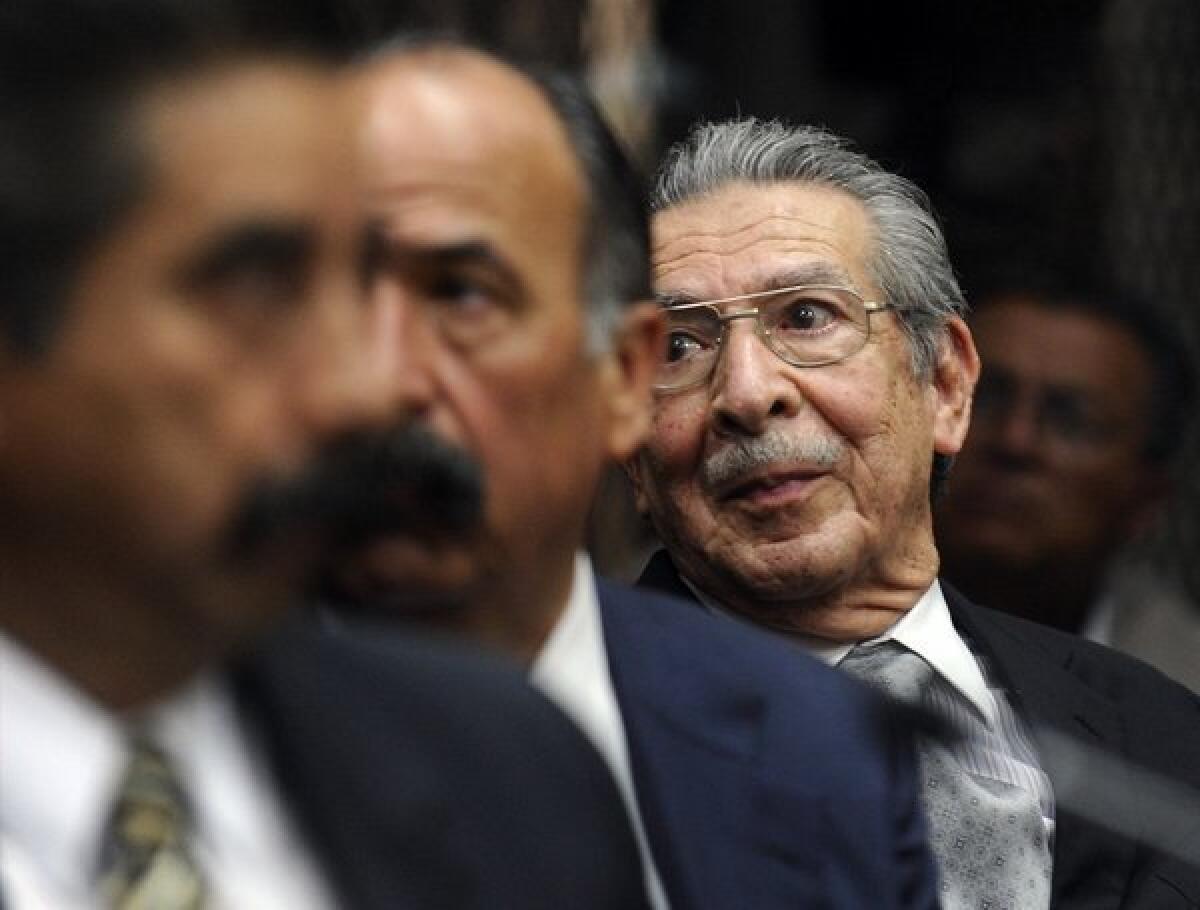Former Guatemalan dictator to stand trial on genocide charges

MEXICO CITY – Former Guatemalan dictator Efrain Rios Montt will stand trial on charges of genocide and crimes against humanity, a Guatemalan judge ruled Monday, in incidents that took place during the height of the Central American nation’s brutal civil war in the early 1980s.
Judge Miguel Angel Galvez ruled that Rios Montt, who took power in a 1982 coup and ruled for just over a year, must appear at a hearing Thursday, according to the attorney general’s office.
The 86-year-old former army general had been under house arrest since January, when he was originally charged with the crimes. Before that, he had been immune from prosecution because of his status as a member of congress.
Some conservative Guatemalans continue to believe that Rios Montt is a national hero whose “hard hand” anti-crime strategies and scorched-earth tactics against Marxist rebels and those suspected of supporting them saved the country from ruin.
But liberal groups and human rights advocates have long hoped that Rios Montt would be forced to answer in court for the atrocities carried out by security forces during his brief rule. The current charges, which Rios Montt denies, allege that he ordered the killing of more than 1,700 indigenous Mayas in the remote Ixil area.
On Monday, some were hailing the development as a blow to the impunity that a number of war crimes suspects have enjoyed in a country where the army retains significant power.
“Until recently, the idea of a Guatemalan general being tried for these heinous crimes seemed utterly impossible,” Jose Miguel Vivanco, the Americas director of Human Rights Watch, said in a statement. “The fact that a judge has ordered the trial of a former head of state is a remarkable development in a country where impunity for past atrocities has long been the norm.”
Geoff Thale, program director for the liberal Washington Office on Latin America, noted that the U.S. Congress still bans Guatemala from receiving direct military aid because the Guatemalan military has allegedly failed to fully comply with ongoing human rights investigations.
The development is also a victory for the country’s aggressive attorney general, Claudia Paz y Paz, whose office has brought charges against a number of officials suspected of rights abuses and atrocities during the 35-year civil war, which ended in 1996 and claimed roughly 200,000 lives.
An amnesty law was hammered out at the end of the war, but it excluded genocide, disappearances, torture and other serious crimes, according to Human Rights Watch.
ALSO:
Mexicans cart away statue of late Azerbaijan leader
Bodies found in Mexico may be those of missing band
Carlos Slim closer to entering Mexico’s television market
More to Read
Sign up for Essential California
The most important California stories and recommendations in your inbox every morning.
You may occasionally receive promotional content from the Los Angeles Times.










